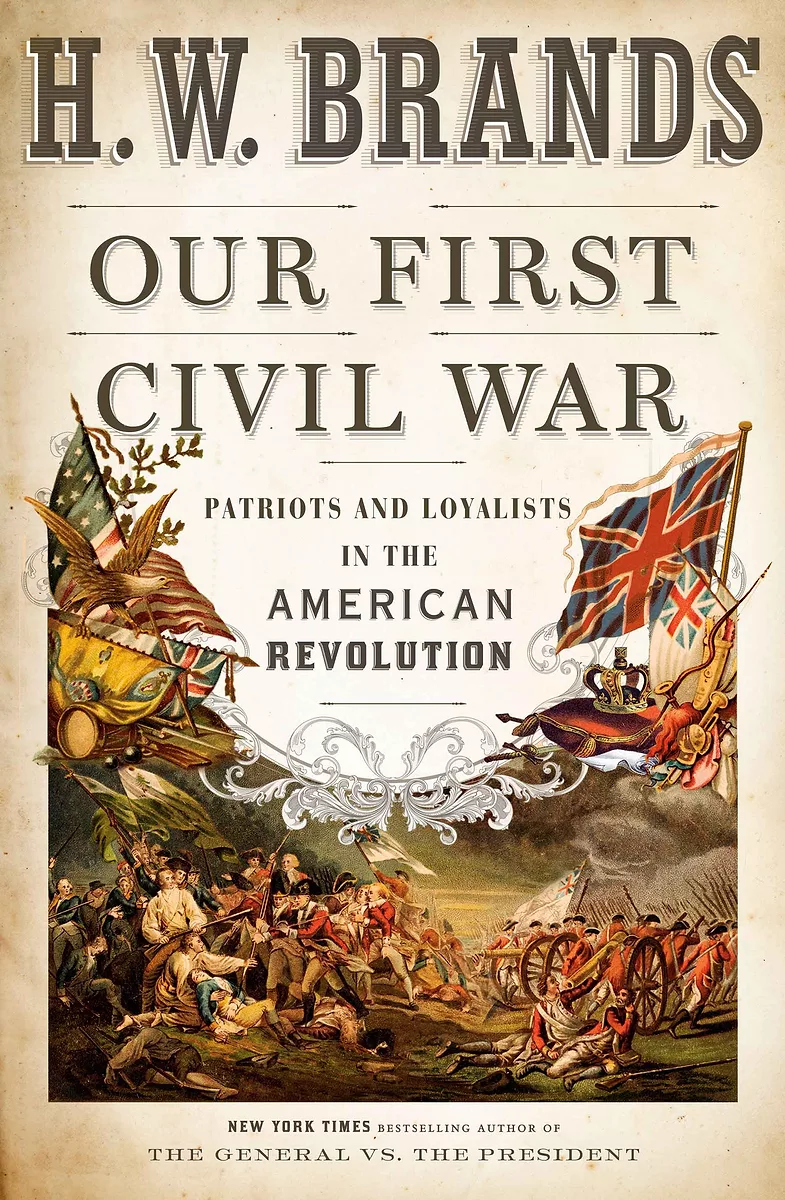Brands thinks we get important facts backwards in regard to the loyalists. As he points out, historical retrospect leads us to treat the decision for independence as the default for Americans in the 1770s, but in fact the opposite was true. “Loyalists just did what they had been doing before,” says Brands, “People like Washington and Franklin are the ones that have to be explained.” That explanation is more complex than it might appear. Washington was one of the richest men in Virginia, and Benjamin Franklin was an influential and world-famous intellectual. Neither of them, it would seem, had any revolution-worthy grievances.
“This is a question I pose to my students,” says Brands, “What would have to happen in the United States for you to say this is no longer your government and you’ll fight against it to create a new government? Most of my students cannot imagine anything like that. George Washington couldn’t imagine anything like that either ten years before the Declaration of Independence.”

H.W. Brands
| Courtesy of DoubledayUnlike the Civil War of the 1860s, the conflict between patriots and loyalists did not fall along clear geographic lines. It pitted neighbor against neighbor and even split families. Brands relates one particularly moving example. William Franklin, as governor of New Jersey, had taken the loyalist side against his father. Benjamin Franklin was deeply wounded by this and took his grandson, William’s son, Temple Franklin, to Europe with himself to raise the boy as a patriot. Years later, Temple wished for his father and grandfather to reconcile, so he arranged a surprise meeting between them at a port in England. When William saw his father, he held out his hand and asked for forgiveness, but Franklin refused. Even as a man close to death, Benjamin Franklin could not reach over the divide that had split his family.
Despite the intensity of the conflict between patriots and loyalists, it has nearly been forgotten. Brands attributes this to the mass exodus of loyalists from America following the war. Some 100,000 loyalists left for England, Canada, and the West Indies, leaving behind few physical symbols of what they had stood for. The new American society had no incentive to memorialize the loyalists and quickly went about constructing the myth of a unified war against the British. The British, for their part, had no incentive to memorialize the loyalists either. “The loyalists were a reminder of a war that England had lost,” said Brands. “The British had no more enthusiasm for celebrating them than Americans today have for celebrating the South Vietnamese.”
Although current politics are not mentioned in Our First Civil War, Brands admits that he was influenced by the divisions in American politics today. He insists that he is neither predicting nor not predicting civil war, but he hopes that his book affects the ways we think about civil conflict in general. “I realized this is a fundamental part of the American story,” says Brands. “We’re deeply divided today, but we’ve been that way from the very beginning. And in many ways, we’re less divided today than we were during the American Revolution.” From Brands’ perspective, outbursts of civil conflict, including the Civil War of the 1860s, are surfacings of a perennial tension and not an external disruption.
But the central lesson that Brands thinks we can learn from our first civil war is the unpredictability of civil conflict. Prior to the Revolution, no one could have predicted that America would split from England, least of all Washington and Franklin. Neither was it clear that the Americans could defeat the British. But most of all, no one could have predicted whether they would become a patriot or a loyalist. “Until individuals have to make a decision, they don’t make a decision,” says Brands, “and they don’t themselves know how they will choose until the moment of choosing comes.” From Brands’ perspective, neither group nor individual outcomes can be foreseen in civil conflicts.
In historical matters, Brands lives by Hegel’s maxim that “The owl of Minerva flies at dusk.” “Should something like widespread insurgencies break out then historians could look back over the previous ten years and see things leading up to that,” says Brands, “But nothing is inevitable until it happens.” Brands’ history is one of complexities and improbabilities, where a New England farmer fires the shot heard round the world. What he most wants readers to take from Our First Civil War is that “history and by extension current affairs are more complicated than you thought. The people who seem the most confident of their positions simply don’t know or are not willing to acknowledge the complications.” In recounting the lives of men like Washington and Franklin, Brands challenges us to think about them as though we do not know what they are about to do. In this way, he challenges us to realize that we do not ourselves know what we are about to do.


